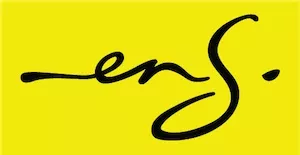The High Court recently passed a decision (Bank Of India (U) Limited Vs NC Beverages Limited And Uganda Revenue Authority (Civil Suit 0009 of 2021) highlighting the priority of a secured creditor in the winding up or liquidation of a company. The court further checked the actions by the Uganda Revenue Authority (“URA”) of seizing and disposing secured assets before they can be realised by a secured creditor on commencement of insolvency proceedings.
Background
The Bank of India gave a loan to NC Beverages (the “company”). The loan was secured by debentures. The company filed a petition in court for liquidation and later defaulted on the loan. Before the bank could recover the loan, the URA seized and disposed of the charged assets including motor vehicles, a processing plant and machinery, raw materials, assorted equipment and office furniture to recover unpaid taxes. The issues before the court were whether the bank was entitled to the possession and sale of the charged property in priority to the URA.
The court held that the bank, as a secured creditor, had a right to the charged assets over all other creditors of the company. The charged assets formed a “lender's fund” from which the bank could recover the unpaid debt owed. According to the court, the URA's action of seizing and disposing of the charged assets was unlawful and contrary to the Insolvency Act, which prohibits the levying of distress against a company upon commencement of insolvency. The URA was ordered to turn over the proceeds of the sale of the company assets to the bank.
Good news
This decision shows that a secured creditor may enforce their security even though insolvency proceedings exist against a debtor. The debtor only has the right to redeem charged assets after the debt has been paid off. The funds not subject to the secured assets are held in trust for unsecured creditors.
An exception to the above rule is that where a debtor's assets are insufficient to meet preferential debts, (including remuneration and expenses of the liquidation, employees' salaries accrued over a four-month period, payments due under the Workers Compensation Act (Cap. 225), unpaid taxes and National Social Security Fund payments), these debts shall have priority over the claims of secured creditors. The court held that this exception did not apply to this case since the winding up petition crystallised the floating charge and it had not been shown that the assets were insufficient to settle the preferential debts.
This case is significant because it reaffirms the superior position of secured creditors and the protection accorded to them by the Insolvency Act. This decision shows an advancement of the court in understanding insolvency proceedings and their purpose in ensuring equitable distribution of proceeds from the sale of the company's assets to a company's creditors based on their ranking in priority under the Insolvency Act.
Previously, insolvency proceedings were seen as a means by a company to evade payment of its debts, as was the case in the 2013 decision of Venture Communications Uganda Limited Company Cause 39 of 2011. The creditors in the case, including the URA, filed an application to dismiss a company's petition for winding up on the grounds that the petition was brought in bad faith to avoid payment of outstanding debts. The court dismissed the petition for winding up on the basis that the petitioner had not adduced sufficient evidence for the court to determine that it was not solvent.
The decision also tests enforcement and application of the provisions of the Security Interests in Moveable Property Act, 2019 which is a fairly recent legislation on taking security over chattels.
The content of this article is intended to provide a general guide to the subject matter. Specialist advice should be sought about your specific circumstances.


